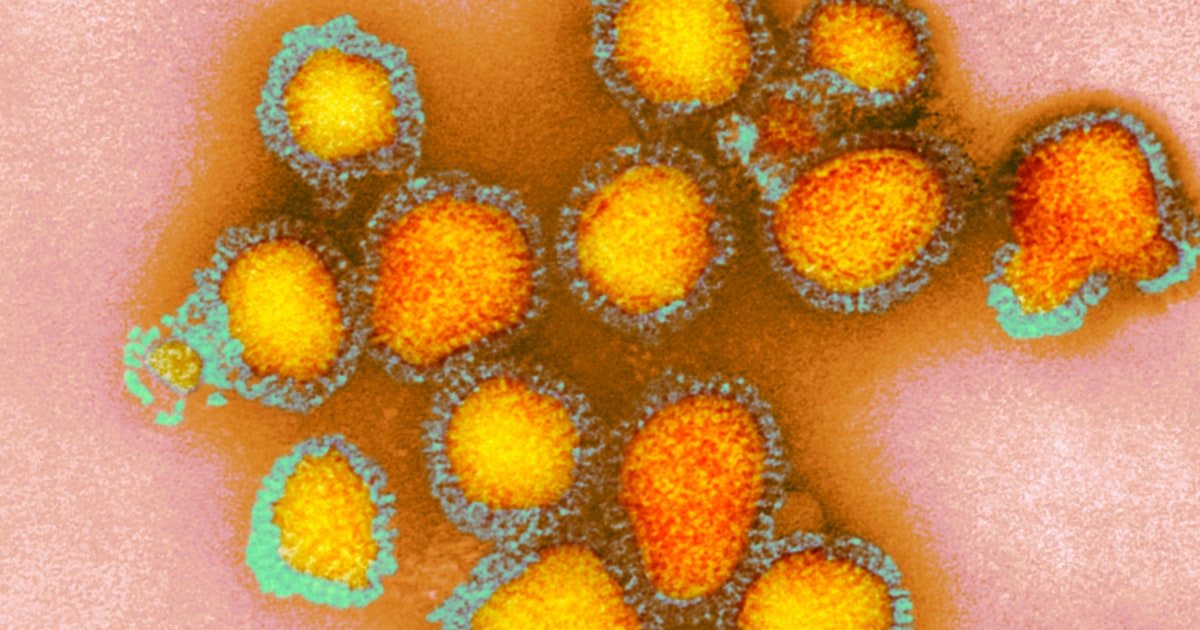Flu season: What outbreaks on college campuses tell us - NBC News

Flu outbreaks on college campuses most likely indicate a bad flu season ahead, but experts say the unpredictable nature of the flu virus means it's too soon to know for sure how this season will unfold.
The Centers for Disease Control and Prevention is currently investigating an outbreak of influenza at the University of Michigan, where at least 528 students have tested positive for the flu since Oct. 6. The University of Florida, Florida State University, Rowan University in Glassboro, N.J., and the University of Rhode Island are also seeing steep upward trends in campus flu cases this month.
Nationwide, the positivity rate for flu is low, at 0.3 percent, but that skyrockets to 37 percent at the University of Michigan. The positivity rate at Tallahassee Memorial HealthCare, where Florida State University is, is around 30 percent, according to the hospital's medical director of emergency services, Dr. Alex Ho. Still, beyond those college campuses, statewide flu cases in both Michigan and Florida remain low.
Alicia Budd, an epidemiologist in CDC's Influenza Division, said that it's unsurprising for early-season flu outbreaks to start on college campuses, given their social nature. The difference this year, she said, is that "we didn't see any flu activity to speak of since March 2020."
Spread of the flu ground to virtual halt when the Covid-19 pandemic took off, as mitigation measures like lockdowns, masking and social distancing went into place. Those not only stop the spread of Covid, but of other respiratory viruses like influenza.
Flu season in the United States typically starts in October but doesn't peak until December to February, Budd said. And though cases are rising, "the national activity is still lower than we saw at this time of year in 2019," she added.
"Worldwide flu activity is still low, though it is slowly but consistently increasing," Budd said. "We're going into this time of year in the Northern Hemisphere where it's colder and people are inside more and where we have traditionally seen our respiratory activity increase. You combine this with the change from where we were a year ago at this time, where worldwide there was a much more stringent application of Covid measures like travel restrictions and masking, and now that's being lifted to various degrees."
The overall positivity rate for last year's flu season was 0.15 percent, compared to almost 17 percent the year before, CDC data show. The hospitalization rate was also much lower, at 0.8 per 100,000 cases, compared to 66.2 per 100,000 the season before.
A bad strain, plus low vaccination rates
So far this year, 90 percent of flu cases are the H3N2 strain, according to the CDC.
That's a strain that could point to a bad flu season ahead, Ho said.
"The majority of the time flu infection is going to be uncomplicated — you're not going to feel well," Ho said. "But what we've seen is, during years when H3N2 is circulating, we've had higher rates of hospitalization and death."
The last time H3N2 was the dominant strain was the 2017-18 flu season, when the U.S. saw 710,000 flu-related hospitalizations and 52,000 flu-related deaths, the worst since the 2009 H1N1 flu pandemic. The 2017-18 flu season also began in early November and was one of the longest flu seasons in recent years.
Ho also noted that the H3N2 tends to mutate faster than other strains of influenza. This year's flu shot does cover a version of H3N2, but "there is a chance that it could change enough for the vaccine to become less effective," he said. "We just don't know yet."
That doesn't mean people should skip their flu shots. At the University of Michigan, 77 percent of cases so far have been in unvaccinated students, a factor that Ho said is contributing to the outbreak. While many people are getting vaccinated against Covid this year, fewer people are getting their flu shots, he said.
Still, there's a chance the dominant strain will change.
"While the predominant strain we're seeing is H3N2 right now, it may not be for the entire season," Budd said. "The flu does unusual things all the time and we've seen situations where early season outbreaks are not indicative of the strain that prevails for the season."
Right now, the flu outbreaks seem to be contained to just a few college campuses, making it still too early to tell how this year's flu season will go.
"It's an unknown right now how this will play out," said Dr. Neha Vyas, a family medicine physician at the Cleveland Clinic. "Over the next several months, now that people are traveling for the holidays and mixing more, this is going to be the big test."
Follow NBC HEALTH on Twitter & Facebook.
Comments
Post a Comment